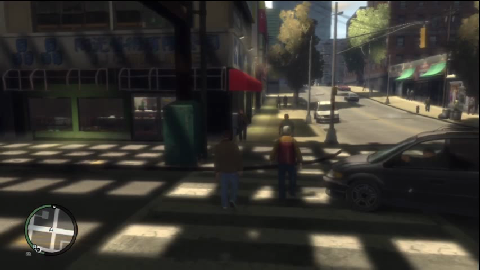Difference between revisions of "Gameplay"
ValterAlves (Talk | contribs) m |
ValterAlves (Talk | contribs) m |
||
| Line 22: | Line 22: | ||
| revisions = | | revisions = | ||
Introduced in version 1.0<br /> | Introduced in version 1.0<br /> | ||
| − | Synopsis | + | Synopsis updated in version 2.0<br /> |
Classified as aggregator since version 2.0 and, as such, no longer represented as a card (i.e., no longer part of the deck). | Classified as aggregator since version 2.0 and, as such, no longer represented as a card (i.e., no longer part of the deck). | ||
| examples= | | examples= | ||
Revision as of 00:59, 30 December 2011
| The card's front face | The card's back face |
This design pattern has been classified as
an Aggregator Pattern after version 1.0
Consequently, it is no longer represented as a card
(i.e. ceased being part of the deck) since version 2.0
Contents
Synopsis
Relationships
Contexts:
Sound Places ![]() , Genre
, Genre ![]() , Narrative
, Narrative ![]() , Emotional Script
, Emotional Script ![]() , Trance
, Trance ![]() .
.
Peers:
Title Screens ![]() , Menus
, Menus ![]() , Cut-Scenes
, Cut-Scenes ![]() .
.
May Include:
Consequent Sound ![]() , Awareness
, Awareness ![]() , R-A-E-D Iterations
, R-A-E-D Iterations ![]() , Musical Outcome
, Musical Outcome ![]() .
.
May need:
Sound Input ![]() .
.
Description
This is an aggregator design pattern referring to all sound explorations occurring during the moments of actual play, including both the sounds that emanate from the game world and those that might be performed, possibly through Sound Input, with the purpose of interacting with that world and its inhabitants (Consequent Sound).
Examples


